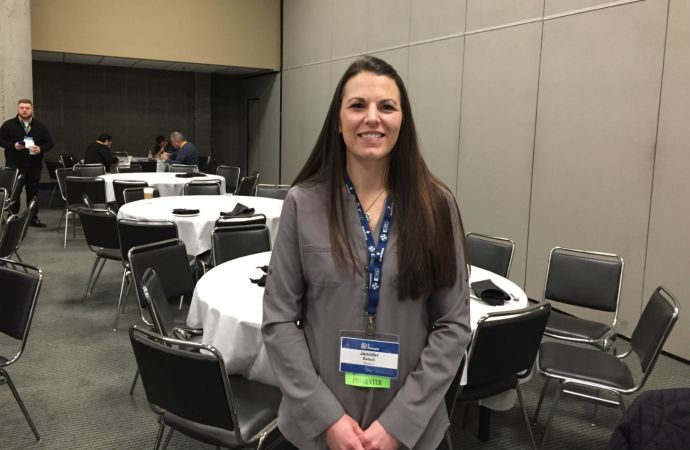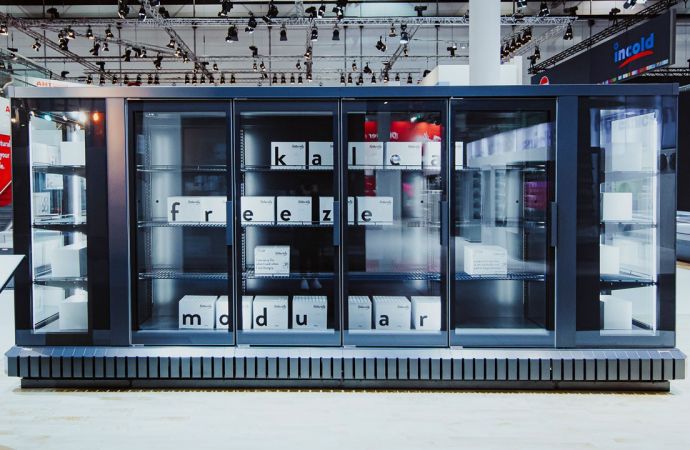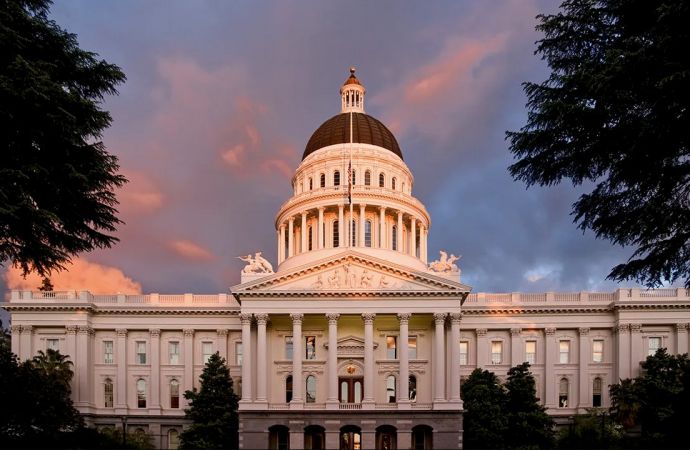CARB will engage stakeholders this year on GWP limits and bans for AC and refrigeration, said Emerson at AHR Expo.

Jennifer Butsch, Emerson
In addition to banning certain high GWP HFCs via the Califronia Cooling Act, the state of California, through its Air Resource Board (CARB), is in the process of finalizing further HFC regulations that will begin to take shape by the end of this year, according to Emerson presentation at the AHR Expo last week in Atlanta, Ga.
CARB has the authority to put limits on HFC use via its SLCP (Short-Lived Climate Pollutant) Strategy, which was approved in March 2017. California regards the SLCP Strategy as the final piece of its mandate to cut HFCs by 40% below 2013 levels by 2030.
The first phase will be to limit GWPs of refrigerants (two or more lbs) used in new stationary AC equipment to below 750 starting in 2023. Emerson expects CARB to announce a final regulation by December 2019, said Jennifer Butsch, regulatory affairs manager – air conditioning for Emerson, at the company’s E360 Forum on January 15 at the AHR Expo.
“AHRI [Air-Conditioning, Heating & Refrigeration Institute] and NRDC [National Resources Defense Council] recommended that step, so there is some certainty this will go through,” she said.
There will be no additional rulemaking for chillers, which will follow The Environmental Protection Agency’s SNAP (Significant New Alternatives Policy) Rule 21.
I’d anticipate the charge limit might move up; 150 seems low to us and many in the industry.”
– Jennifer Butsch, Emerson
The SLCP Strategy also contains prohibitions on refrigerants (more than 50 lbs) with a GWP of more than 150 for new stationary refrigeration beginning in 2022. “This will be debated at stakeholder meetings until July,” said Butsch. “I’d anticipate the charge limit might move up; 150 seems low to us and many in the industry.” A final regulation for refrigeration is expected by March 2020, she added.
In addition, the SLCP plan calls for a blanket ban on production, import, sales, distribution or entry into commerce of refrigerants with a GWP of 1,500 or more, effective in 2022.
CARB has proposed an exception to the blanket ban for reclaimed refrigerants used in maintenance; the reclaim process has not been defined yet, said Butsch, noting, “They don’t want reclaimed refrigerants from other states.” Another exception has been proposed for R410A in air conditioners, which can’t be retrofitted with lower-GWP refrigerants.
CARB will engage with stakeholders several times in 2019, Butsch said. “I would encourage everybody to communicate with CARB – they are looking for information,” she said.
She added that the California regulations and others would have an impact on system architecture, which is starting to move to “distributed models with lower charges.
Related stories



